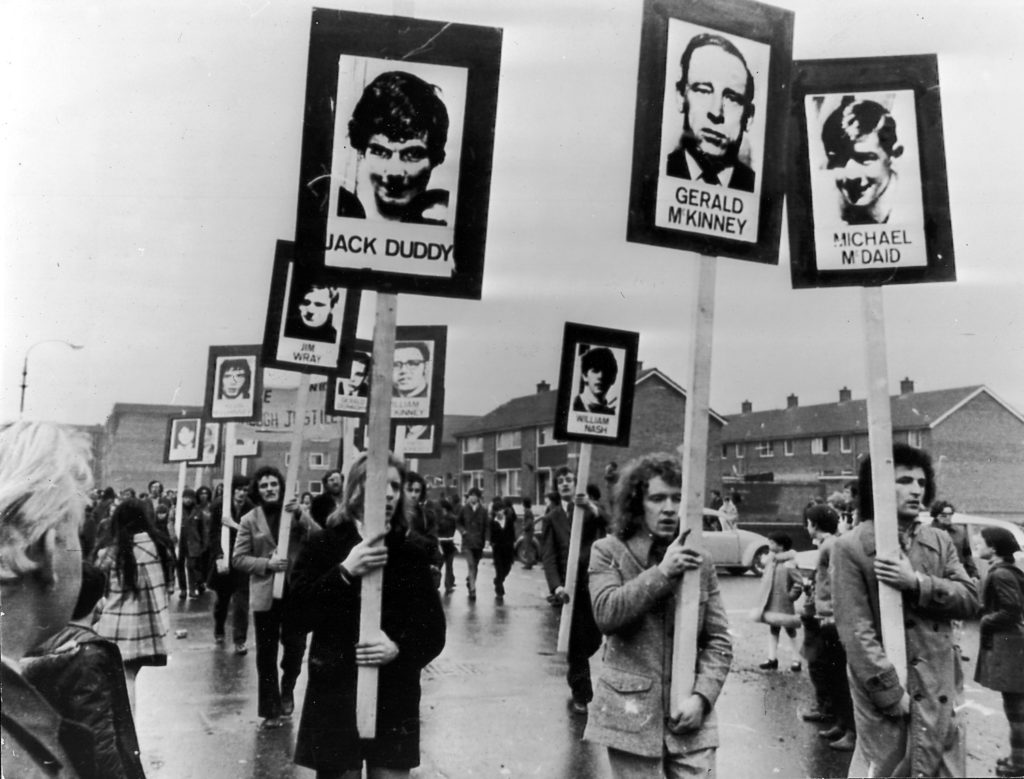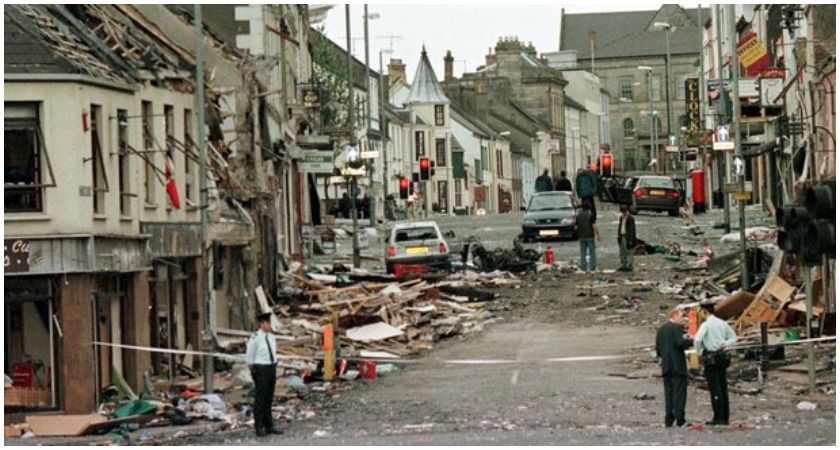BRITAIN IS set to reveal plans which would outlaw any prosecutions for Trouble-era killings from all sides.
Secretary of State for Northern Ireland, Brandon Lewis, is expected to make a statement in Parliament today where he will announce the publication of a proposed statute of limitations banning all prosecutions relating to the 'Troubles' in Northern Ireland before the Good Friday Agreement of 1998.
The move would see all British soldiers and ex-paramilitaries, including from the IRA, UVF and and UDA, exempt from standing trial for any killings they are accused of during the decades prior to 1998.
BBC News reports that the British government hopes to pass the legislation this Autumn, with "short and focused talks" expected to take place before then-- but some worry the outcome has already been determined.
Proposed legislation which would ban the prosecution of anyone accused of killings during the 'Troubles' was first reported earlier this year, with the Irish Government and multiple Northern Ireland political parties opposed to the plans, with many concerned it provies an 'amnesty' to those accused or charged with murder.
 Families campaign for justice following the 'Bloody Sunday' massacre (Getty Images)
Families campaign for justice following the 'Bloody Sunday' massacre (Getty Images)At the time, Sinn Féin leader in the north and Deputy First Minister of Northern Ireland, Michelle O'Neill, said the planned legislation was a "cynical move that will put British forces beyond the law".
"This is legal protection for those involved in state murder," she said. "This is not acceptable."
SDLP leader Colum Eastwood said the legislation would be "the biggest betrayal of victims by the British government and will put a huge obstacle in the way of true reconciliation."
He added: "This is the most unprincipled and cynical British government in many years and that’s saying something. An absolute disgrace. Shame on them."
A 2014 Stormont House Agreement which gained support from all Irish, Northern Irish and British governments, had proposed an Independent Historical Investigations Unit to examine all Troubles killings in which the perpetrators had not been brought to justice-- the Irish Government remains in support of this, however the new UK legislation could see this scrapped.
The Irish Government fear that the new legislation, and in fact any deviation from the promises made during the 2014 Agreement, would cause untold hurt and anger for families on all sides who lost loved ones during the three decades of the Troubles.
 The 1998 Omagh Bombing was the deadliest atrocity of the Troubles era (Image: Getty)
The 1998 Omagh Bombing was the deadliest atrocity of the Troubles era (Image: Getty)Britain's Queen Elizabeth issued a speech in December 2019 where she said the UK government would "bring forward proposals to tackle vexatious claims that undermine our armed forces, and will continue to seek better ways of dealing with legacy issues that provide better outcomes for victims and survivors", comments which drew huge anger from families whose loved ones were killed during the 'Troubles' in Northern Ireland.
The new legislation comes a week after two former British soldiers charged with Troubles-era murders in Northern Ireland had their cases dropped.
On Friday, July 2 prosecutors informed the families of the victims of the atrocities that the men, referred to as soldiers ‘F’ and ‘B’, would no longer be prosecuted for the crimes they had previously been charged with.
Soldier F, a former member of the British Army’s Parachute Regiment, was charged with the Bloody Sunday murders of James Wray and William McKinney in Derry in January 1972 as well as five attempted murders.
He was the only person to be charged in connection with the killings on that day – where 13 people were shot dead and 15 were wounded when the Parachute Regiment opened fire on innocent civil rights demonstrators.
Soldier B was charged with the murder of Daniel Hegarty, a 15-year-old who was shot twice in the head by a soldier in Derry in July 1972 during Operation Motorman.
He was also charged with wounding his cousin, Christopher Hegarty.

